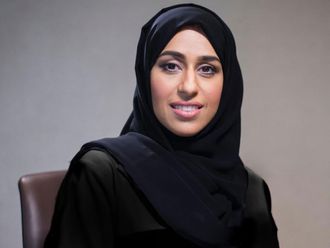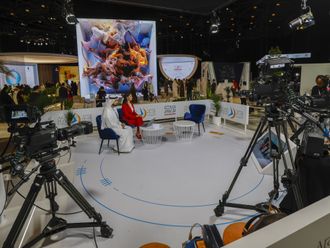Dubai: Dubai Municipality has announced its sixth updated strategic plan for the period 2016 to 2021.
Hussain Nasser Lootah, director-general of Dubai Municipality, said the updated plan — the sixth Plan 2016-2021 — is in line with Dubai’s strategic plan for 2021 as well as their commitment to respond to the vision of His Highness Shaikh Mohammad Bin Rashid Al Maktoum, Vice- President and Prime Minister of the UAE and Ruler of Dubai.
“The happiness of Dubai’s population is the government’s top priority, in addition to smart, sustainable transformations in the city’s development, which will keep it in line with major international hubs,” he said.
The new plan will help Dubai achieve its main objectives — sustainability of the city’s environment, providing world-class and high-quality services, efficient urban planning and ensuring high quality infrastructure is available to achieve these goals.
It also plays an active role in building individual and community commitment to social responsibility.
“The plan took eight months to formulate after careful analysis of the current economic situation. Five surveys were conducted for different categories and the decision was reached after meeting 13 entities, 100 workshop leaders and over 35 personal interviewees,” he explained.
The plan was put in place taking into consideration 2,700 responses to a questionnaire that includes opinions from various segments of society.
Research was conducted based on best practices in municipal work in seven key areas: the environment, sustainability, society and individuals, standard of living, government services, technology and the economy.
The research involved 15 countries, 20 cities and 18 organisations working in municipalities. These regions were chosen because of their expertise and excellence in managing cities and high scores in global success indicators, he said.
Dubai, he noted, ranks 52nd on the global indicators list — based on quality of life, sustainable cities, urban planning, smart growth and transformation and other indices.
Engineer Eisa Al Maidour, deputy director of Dubai Municipality, said the plan is based on key pillars which include, “growth of the city, building a unique city, sustainability of the city’s environment, technology and innovation”.
The plan, he said, includes 23 goals and strategies to support the pillars, which will help achieve Dubai Municipality’s vision by 2021, which is Dubai becoming the first smart and sustainable city.
Safari Dubai, Dubai Frame, Desert Flower, Aladdin, My City My Environment, municipal areas to house citizens and development of the Dubai Creek are a few of the strategic projects and initiatives that have been adopted in order to fulfil this vision.
Others include Mohammad Bin Rashid Library, Used Book Market, the municipality that does not sleep, intelligent health safety systems, initiatives for people with disabilities, the Green Building rating system, and smart waste management.
The plan is inspired by Shaikh Mohammad’s vision, which set standards of competitiveness and innovation through participation, transparency and happiness.
Box:
Sustainability projects: Desert Flower, Green Building Rating System, Urban Development projects, the city that doesn’t sleep, clean energy to protect marine resources, deployment of green areas, solar tree protection, green concrete and monitoring of groundwater systems.
Technology and Innovation: Smart waste management, aerial surveillance of unmanned soil, smart irrigation, development of E-gates, smart applications for access to services, intelligent apps for parks and beaches, import and re-export of food and innovations in laboratories and medical systems.
The focus groups involved ensured the overall project focused on an intelligent system for food safety, health supervisors, new partnerships, community-based initiatives and the smart application of breaches of hygiene.
Other initiatives include Mohammad Bin Rashid Library and Blue Flag, which are committed to sustainability, expansion of achieving global reference laboratories, reducing environmental footprint, and sanctioning building permits.












